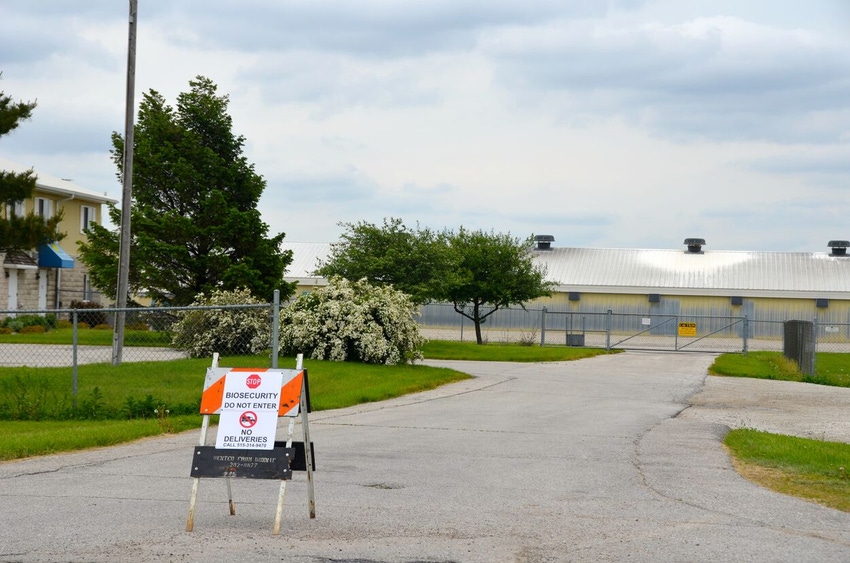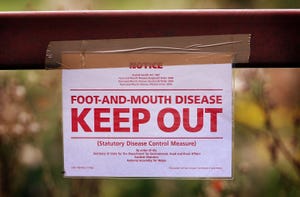Senators request more aggressive approach on HPAI countermeasures
Legislative Watch: More research on wild bird deterrents, vaccines, biosecurity; USDA criticized for canceling cattle inventory report; $22M for underserved, veteran farmers.
May 10, 2024

Amid growing concerns with the spread of highly pathogenic avian influenza into mammals, a bipartisan group of 17 Senators wrote a letter to USDA Secretary Tom Vilsack last week urging a new approach. Senators Amy Klobuchar (D-Minn.) and John Cornyn (R-Texas) led the coalition, which also included the two top lawmakers on the Agriculture Committee, Debbie Stabenow (D-Minn.) and John Boozman (R-Ark.).
The letter asks Vilsack to use a “collaborative federal response, heightened surveillance and additional resources to support vaccine research.” To date, governmental officials have been hesitant to pursue vaccination strategies due to concerns over potential impacts on foreign trade. The Senators assert that the time has come to conduct more aggressive research into all options for stopping the HPAI outbreak.
“The evolving risk this outbreak poses demands a broad, coordinated approach from the U.S. Department of Agriculture, the Centers for Disease Control and Prevention, the Food and Drug Administration, state and local partners, and researchers,” the Senators wrote. “Previous outbreaks have benefited from a consortium strategy wherein the USDA brought together the brightest minds in epidemiology and animal health research to lessen the potential economic and societal cost of the spread. We ask that the USDA take a similar approach – including additional research on wild bird deterrents, vaccines, and advanced biosecurity practices – when combating the current outbreak.”
Lawmakers criticize USDA for canceling cattle inventory report
A bipartisan group of 73 members of the House and Senate sent a letter to USDA Secretary Tom Vilsack questioning the agency’s decision to cancel the July Cattle Inventory Report, the Cotton Objective Yield Survey and all County Estimates for Crops and Livestock. USDA’s National Agricultural Statistics Service announced the decision in early April, blaming budget cuts.
“The reports slated for discontinuation are highly valuable to the entire U.S. agricultural sector, and particularly for cattle, cotton, and grain,” the letter said. “While we recognize that NASS has seen a modest year-over-year appropriations reduction, we hold that the costs to industry will be more adverse than the cost savings NASS may realize through cessation of these reports.”
The letter was led by Tracey Mann (R-Kan.) and Jim Costa (D-Calif.), both members of the House Agriculture Committee. The group requested that Vilsack “work with Congress and industry stakeholders to seek alternative means of cost cutting” and continue publication of the reports.
USDA announces $22M for underserved, veteran farmers
On Tuesday, USDA announced it will award $22.3 million to help underserved and veteran farmers and ranchers own and operate successful farms. The funding comes from USDA’s 2501 Program and will be channeled through community-based and nonprofit organizations, institutions of higher education, and tribal entities.
The 2501 Program has operated for over 30 years to help underserved farmers and ranchers through training and technical assistance. It was originally authorized in the 1990 farm bill “to help underserved farmers, ranchers and foresters who have historically experienced limited access to USDA programs and services,” according to the program’s official website.
The 2014 farm bill expanded the 2501 Program to also serve veterans. According to USDA, since 2010 the program has awarded 615 grants totaling more than $194 million. Applications for the program are due July 5 and can be submitted through Grants.gov.
About the Author(s)
You May Also Like





